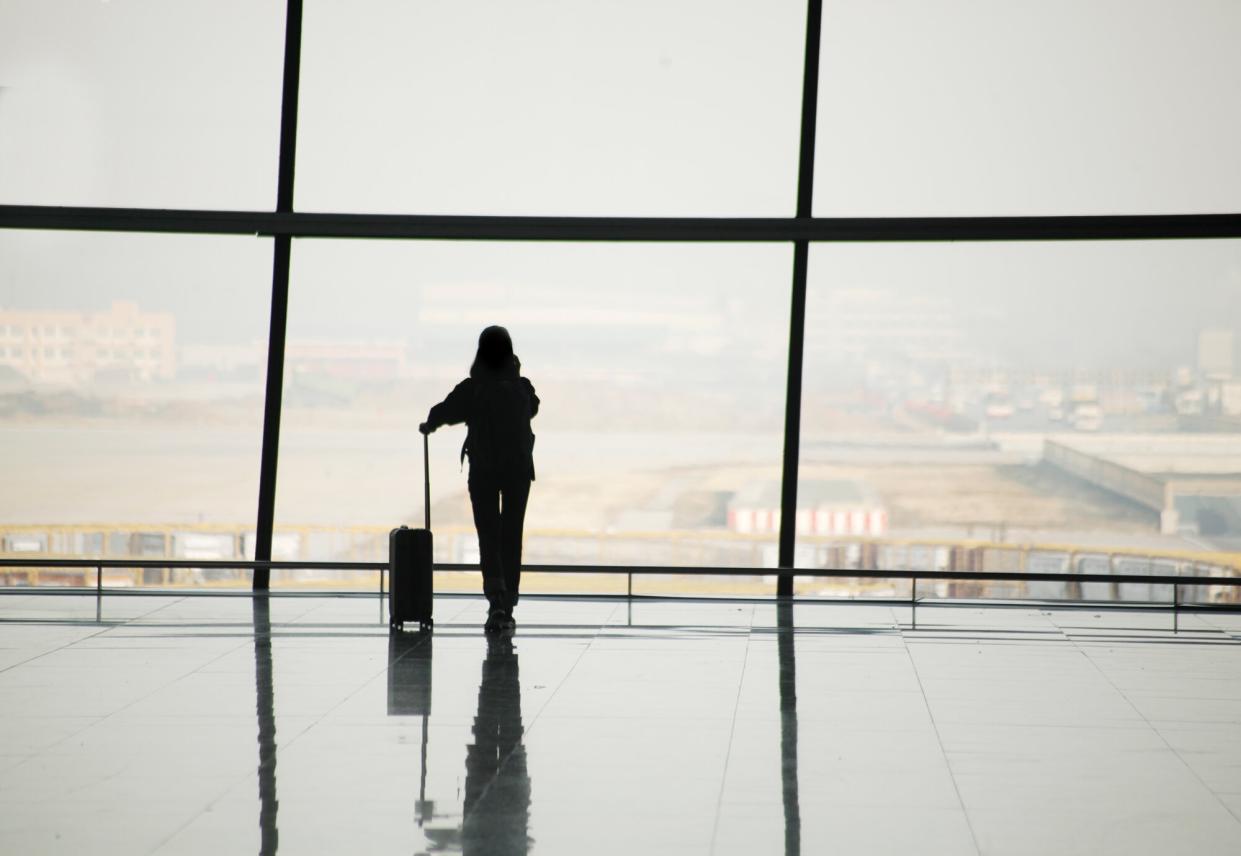Before You Go on a Trip with Someone New, Watch For These Warning Signs

Michael Duva/Getty Images
While law enforcement (and TikTokers) are working overtime to piece together details of 22-year-old travel influencer Gabby Petito's disappearance and death, her case has brought a few important things to light: First, there are thousands of missing people out there, many of them Indigenous, Black, and transgender, whose cases are deserving of attention and resources. And second, there is a larger conversation to be had about intimate partner violence and the way it can sneak up in relationships, even ones that may seem picture perfect on Instagram.
Speculation about whether Petito's fiancé, Brian Laundrie, is an abuser is just that — speculation. However, he was reportedly seen by multiple witnesses in physical altercations with Petito. He also locked her out of their van — the home they were sharing on the road. Currently, he is missing.
Regardless of the exact nature of their relationship, Petito's case has sparked a dialogue about the dangers of traveling with an abusive partner — especially one who shows narcissistic tendencies.
"Domestic violence or intimate partner violence is the constant need to have power and control over someone — there is a lot of inequity in the way things are decided," says Wendy Blanco, LCSW, Director of Counseling Services and Trauma Recovery at Peace Over Violence in Los Angeles. Narcissism and abuse often overlap, in that narcissists have a compulsion to make sure the survivor doesn't have their own identity outside of the relationship. These abusers may isolate their partner and keeping them from spending time with other friends and family, according to the National Domestic Violence Hotline.
People identifying as women, particularly Black women, as well as LGBTQ+ people, are more likely to be impacted by intimate partner violence and narcissistic abuse, though it can happen to anyone.
Some red flags include gaslighting — a pattern of repeatedly dismissing the survivor's voice and opinion, especially in public — and threats. A narcissistic abuser might threaten to harm themself, a loved one, or to leave the other person in the relationship, Blanco explains.
Whether you're having doubts about your own relationship or situationship, or you're looking out for a friend whose partner is showing some red flags, it's important to recognize signs of narcissistic abuse — particularly when you're about to be alone or go away on a trip with the person. It's not your responsibility to prevent abuse, obviously, but spotting dangerous (and sometimes hidden) signs of it can be life-saving.
Here's what to know to keep yourself as safe as possible while traveling.
Narcissistic behavior and abuse can sometimes show up as "grand romantic gestures."
In our social media-driven world, it's easy to glorify grand gestures — but too-good-to-be-true romance can, sometimes, actually be too good to be true. "Love bombing," as such behavior is often called, can include romantic getaways, says Blanco. If it seems too soon in the relationship to be going off somewhere alone with someone, or like the trip isn't financially feasible for the other person, you have the right to be skeptical and not go on the trip in the first place.
Make sure your friends and family know the person first.
Before you go away with a new partner for the first time, introduce them to your loved ones, and make an effort to get to know this person's family and friends, if possible, too. It's key for you to see that they have long-term relationships and friendships that are healthy, Blanco says. "We want to feel like we can trust this person before taking a leap and being with them for an extended period of time," she adds.
RELATED: 10 Signs You're Dating a Narcissist
Share your location with a core group of people you trust.
Blanco advises staying in touch with trusted loved ones back home, and keeping them updated on where you are and who you're with. This could mean giving them information about your flight itinerary or your general, day-to-day plan if you're road-tripping. You can choose to literally share your phone's location with them if you feel safe doing so. There are also safety apps like Safe Squad that you can use to check in periodically with chosen emergency contacts.
Devise a safety plan in case of emergency.
You don't have to spend an entire trip anticipating an emergency, but it is a good idea to have a safety plan in place if the person you're traveling with abandons you or in case of another crisis, Blanco suggests. Try to keep a list of numbers and backup contact information with you in a place besides your phone, just in case. Know that you can text START to 88788 or call 1-800-799-SAFE for the National Domestic Violence Hotline, where someone can coach you through a dire situation, too.
Trust your intuition (and your friends).
"When someone is intending to do harm, they will find a way to manipulate the situation," Blanco says. That's why you need to rely on your own instincts. "The moment you feel uncomfortable, process that with someone you trust," adds Blanco. If something seems unsafe or you're just noticing some red flags about your partner or travel companion, it's not too late to formulate an escape plan with those trusted people in your inner circle. Similarly, if a friend seems "jealous" of your relationship or points out valid issues with someone, know that it's out of love and something you should listen to, just as much as your own gut instincts.
